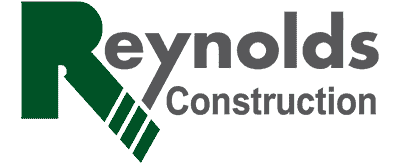Looking for a Dumpster in Salem? Get One Today!
Need immediate waste solutions? Our dumpster rental in Salem delivers containers promptly throughout the area, often with same-day availability for urgent project needs. Waste Removal USA provides responsive service with multiple size options perfect for residential cleanouts, renovation debris, or construction waste management. Contact our friendly team today at 540-566-0323 for rapid assistance with your disposal requirements, or secure your dumpster instantly with our efficient online dumpster rental quote system designed for fast results.
Dumpster Rentals That Let You Keep More in Your Pocket
- Our value-engineered service model eliminates unnecessary costs without compromising reliability
- Strategic container sizing prevents paying for capacity that exceeds your specific project needs
- Transparent pricing structure ensures complete cost visibility without hidden fees or surprises
- Efficient scheduling prevents rental charges during non-productive planning periods
Renovating a Business? Get a Roll-Off Dumpster for Cleanup
Corporate transitions produce significant waste demanding methodical handling across remodeling stages. Waste Removal USA provides tactically located receptacles that implement structured debris procedures from initial teardown through final detailing. Our business experts arrange container services in alignment with construction benchmarks, guaranteeing uninterrupted capacity without operational interruptions or unsightly overflow scenarios.
Dumpster Sizes
*actual dimensions may vary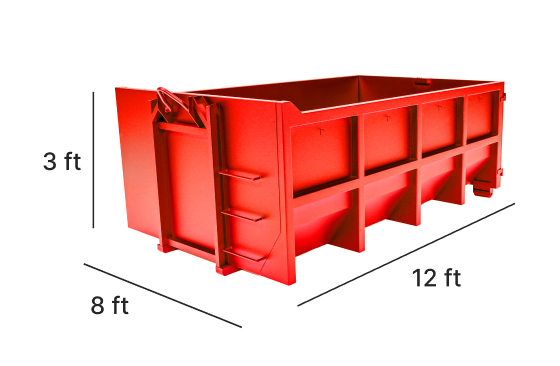
10-YARD DUMPSTER
10 yard dumpsters can hold about 3 pickup truck loads. Great for a spring cleaning like emptying your garage or basement.
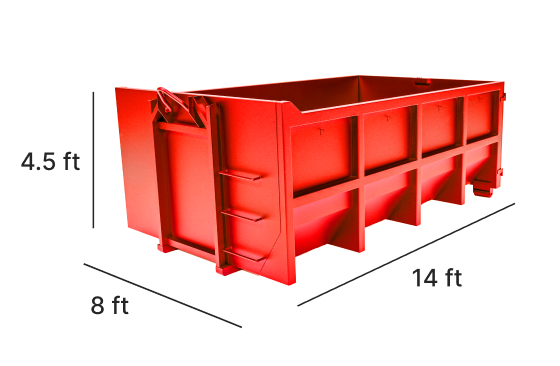
15-YARD DUMPSTER
15 yard dumpsters can hold about 4.5 pickup truck loads. Ideal for slightly larger garage or basement cleanouts.
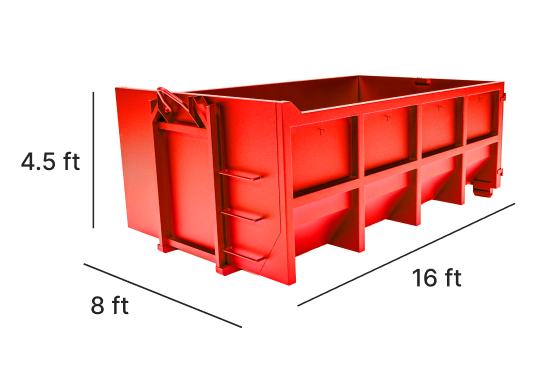
20-YARD DUMPSTER
20 yard dumpsters can hold about 6 pickup truck loads. Great for those remodeling or re-shingling a roof.
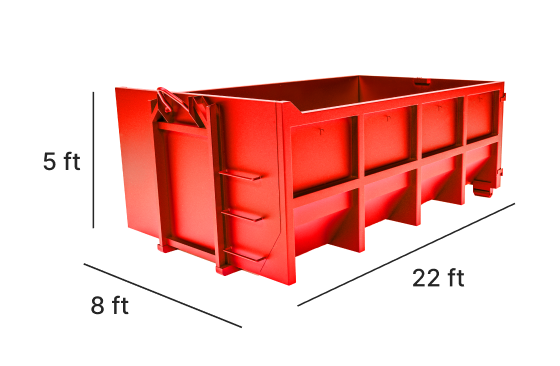
30-YARD DUMPSTER
30 yard dumpsters can hold about 9 pickup truck loads. Equipped for medium construction projects.
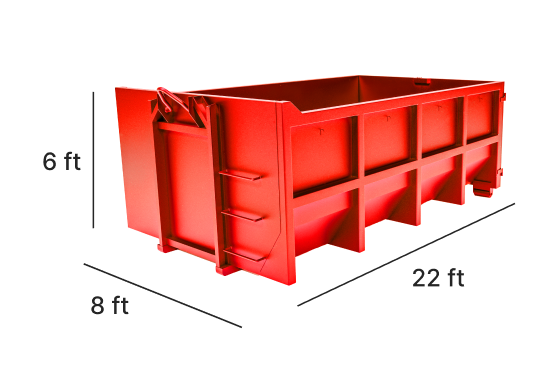
40-YARD DUMPSTER
40 yard dumpsters can hold about 12 pickup truck loads. The largest dumpster great for larger construction projects.
Salem Construction Dumpster Rental – Simple & Fast
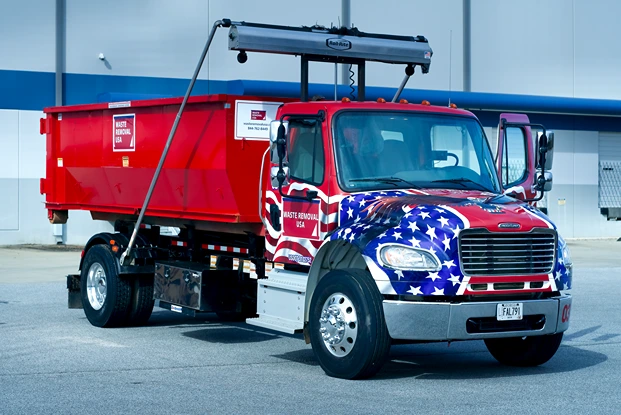
Image Credit: Rebekah Pruett Photography
Our construction dumpsters are delivered fast to keep you on schedule when you have a construction job near Hanging Rock Golf Club or Roanoke College. We can even help you get the fast roll-off rental delivery that you need in Roanoke and Eagle Rock. Don’t settle for slow service—call 540-566-0323 and experience fast, friendly dumpster rental.
Handle Your Home Improvement Waste the Smart Way
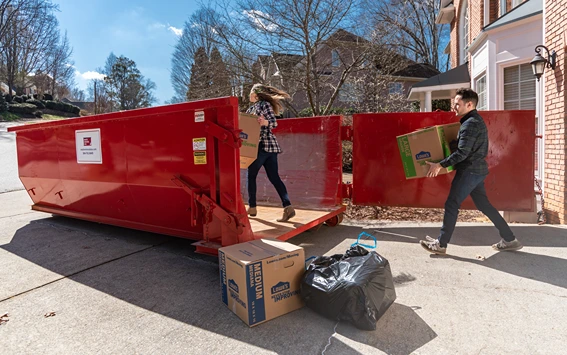
Image Credit: Rebekah Pruett Photography
Transform renovation chaos into organized efficiency with Waste Removal USA. Our strategic container placement creates clear workflow patterns while preventing debris accumulation that slows progress. Contractors consistently finish ahead of schedule with our responsive waste management solutions.
Salem Waste Disposal – Rent the Best Roll-Off Dumpster
Salem homeowners are recognizing the impact of effective debris disposal. Waste Removal USA traverses the region’s heritage districts and difficult landscapes using custom equipment where other providers avoid servicing. Connect with our Salem crew at 540-566-0323 for prompt same-day delivery, reach out to us at sales@wasteremovalusa.com, or reserve immediately via our efficient platform engineered specifically for community properties. No complex agreements – just dependable assistance precisely when required.
Dumpster Rental Options at Waste Removal USA
Give us a call and we will set you up with the right dumpster for the job in your local area
Residential
Residential roll off dumpsters are great for household clean outs or clean-ups, yard debris removal and general junk removal.
Construction
Roll off dumpsters for residential & commercial construction debris are perfect for any home renovation job.
Yard Waste
If you are doing yardwork and need a roll off container for yard waste in & around your local area, we have you covered.
Concrete
Order a 10 yard or 20 yard roll off dumpsters for either "clean" concrete or "clean" dirt loads.
Roofing
Just as the name implies, roofing dumpster rentals are used for shingles and sheathing only.
Dumpster Size Comparison
|
Size |
Typical Dumpster Dimensions |
Estimated Capacity* |
|---|---|---|
|
14' long x 8' wide x 3.5' high |
3 pickup truck loads |
|
|
16' long x 8' wide x 4' high |
4.5 pickup truck loads |
|
|
20' long x 8' wide x 4' high |
6 pickup truck loads |
|
|
22' long x 8' wide x 6' high |
9 pickup truck loads |
|
|
22' long x 8' wide x 8' high |
12 pickup truck loads |
Read What Our Customers Are Saying
Salem, VA Dumpster Rental FAQ: How to Use the Service
How many cubic feet of debris fit in a 30-yard dumpster?
A 30-yard roll-off container provides approximately 810 cubic feet of total capacity (30 cubic yards × 27 cubic feet per yard). This translates to roughly 22 feet length × 8 feet width × 6 feet height of usable interior space for debris placement, with slight variations between providers based on specific container design.
Practical capacity typically reaches about 85-90% of theoretical volume (approximately 690-730 cubic feet) due to loading inefficiencies, material voids, and uneven settling. Most providers prohibit loading materials above container sidewalls, further reducing practical capacity from mathematical calculations. For context, this volume accommodates approximately 12-15 standard pickup truck loads of typical household or construction debris.
Are there weight limits for tree debris in a dumpster?
Yes, standard containers implement weight restrictions for tree debris ranging from 2-3 tons for 10-yard containers to 4-6 tons for 30-yard containers. These limits address transportation safety requirements rather than container structural limitations, as green wood carries substantial weight relative to volume.
Fresh-cut tree materials typically weigh 350-500 pounds per cubic yard for leafy/branch materials and 700-900 pounds per cubic yard for trunk sections, meaning a 20-yard container filled with mixed tree debris approaches 5-6 tons. Many providers offer specialized “yard waste” containers with modified weight allowances better accommodating the density of fresh wood materials. Consider allowing smaller branches and leafy materials to dry for 3-5 days before loading when possible, substantially reducing overall weight.
Do I need a special permit for dirt disposal?
Most jurisdictions don’t require individual disposal permits for residential quantities of uncontaminated soil (under 10 cubic yards). The container provider typically handles necessary documentation for standard clean fill disposal under their existing operational permits without requiring additional homeowner documentation.
For larger quantities or potentially contaminated soil (properties with known industrial history or fuel tank removal), some municipalities require soil testing before disposal authorization. These testing requirements typically involve basic environmental screens checking for petroleum products and common industrial contaminants. Most providers implement “clean fill” certification processes requiring customers to verify soil origin and absence of contamination without formal testing for standard residential quantities.
Can a 20-yard roll-off dumpster handle heavy roofing shingles?
Yes, 20-yard containers efficiently handle roofing materials for standard residential projects generating 40-75 squares (4,000-7,500 square feet) of asphalt shingle waste. These containers provide optimal balance between capacity and structural specifications for concentrated roofing weight.
Load materials evenly across container floor rather than creating concentrated piles, distributing weight for transportation stability. Most providers recommend maintaining maximum debris height approximately 12-18 inches below container sidewalls for roofing materials specifically, allowing for potential material settling during transportation. For multi-layer tear-offs (homes with several roofing generations), consider 10-yard containers with multiple rotations rather than fully loading larger containers, as these projects frequently exceed weight allowances before reaching volume capacity.
What's the best dumpster for cleaning foreclosed homes?
A 20-yard container represents the optimal balance for typical foreclosure cleanouts, accommodating both interior abandoned household items and limited construction debris from basic repairs. This size efficiently handles contents from 1,500-2,000 square foot properties without requiring multiple container rotations for standard cleanouts.
For properties with significant mold remediation or water damage requiring substantial material removal, consider 30-yard containers accommodating both personal property and building material removal simultaneously. Most providers offer “property preservation” container programs with extended rental periods (14-21 days versus standard 7-day terms) specifically designed for foreclosure preparation requirements. These programs typically include flexible scheduling allowing on-site retention during multi-phase cleanup without premium charges for extended duration.
Are food remnants allowed in kitchen remodel dumpsters?
Small quantities of food remnants (refrigerator/pantry cleanout) are generally acceptable in construction containers as incidental waste during kitchen remodeling. However, substantial food waste quantities should be avoided as these materials can attract pests and create odor issues during standard rental periods.
For appliance cleanouts specifically, remove all liquids and loose food items before placing refrigerators or freezers into containers. Some municipalities implement specific food waste restrictions in construction containers, particularly in urban environments with rodent management programs. For substantial food quantities discovered during property cleanouts, consider separate disposal through standard residential waste channels rather than construction containers, as many providers implement additional charges for containers generating odor complaints from neighboring properties.
Find Location
Preparing for Dumpster Delivery
Our Service Area in Salem
Customer Reviews
Hours
Monday - Friday8:00AM - 6:00PM





